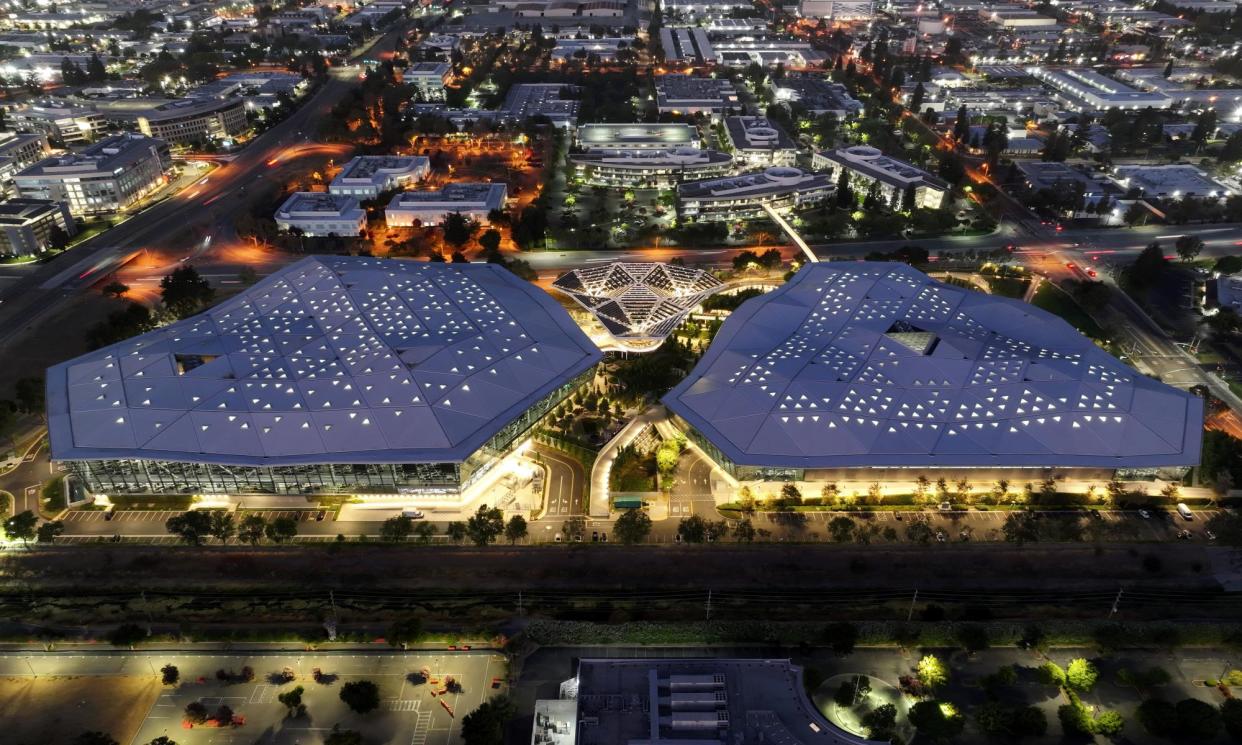Nvidia shares fall on slowing growth and production concerns

Shares in the chip designer Nvidia have fallen after investors were spooked by signs of slowing growth and production issues, despite the artificial intelligence company posting a 122% rise in second-quarter revenues compared with the same period last year.
The Silicon Valley company’s revenues for the period more than doubled to $30bn (£23bn), beating average analyst estimates of $28.7bn. However, investors were concerned about signs of a slowdown in growth, in particular around its next-generation AI chips, codenamed Blackwell.
The stock fell as much as 7% in pre-market trading, before paring back losses to a 3.4% fall as of midday trading on New York’s Nasdaq. The chipmaker is the third most valuable company in the world, with a market value of $3.1tn. The sudden drop in its share price wiped more than $100bn (£76bn) from its stock market value.
Nvidia’s partial recovery after its early morning decline appeared to buoy other tech stocks and chipmakers during Thursday trading. Google, Apple and Amazon, as well as the chip designer Arm holdings, all saw their stock prices rise as of midday.
Nvidia said the delivery of its Blackwell chips – which comprise 208bn transistors that carry out calculations to train its large language model – would be delayed by several months from January. Its chief executive, Jensen Huang, has previously said that Blackwell would generate “a lot of revenue” for the business this year.
Simon French, the chief economist and head of research at the investment bank Panmure Liberum told the BBC: “There were just some signs around the edges in numbers that that rate of growth was trying to slow. Their current AI chip ‘hopper’ is selling well, but the next one, the next generation Blackwell, has faced some production delays, and that perhaps is one of the reasons why Wall Street, after hours, sold off the stock.”
Nvidia bosses did not detail the extent of the delay for Blackwell deliveries but said manufacturing issues had been addressed by TSMC, the Taiwanese semiconductor firm that builds the US company’s most advanced chips. They added that early samples were now shipping to a small group of customers.
The drop in Nvidia’s share price dragged on US markets, in particular the S&P 500 index. Nvidia makes up about 6% of the total value of the index and has helped drive its gains this year, after rising more than 160% over the past 12 months.
Matt Britzman, an analyst at the investment platform Hargreaves Lansdown, said Nvidia was facing the challenge of how to match the hype. “It’s less about just beating estimates now, markets expect them to be shattered and it’s the scale of the beat that looks to have disappointed a touch.”
While many investors have bought into the theoretical impact of artificial intelligence and claims that it could transform nearly every global industry, French noted that the practical use cases “haven’t yet been proven”.
“Such are the lofty expectations for this stock, not just as a single company, but its broader economic impact. If you’re going to raise expectations that high, then you’ve got to keep growing at spectacular rates,” he said.
However, Britzman cautioned against reading too much into the market reaction, given that investors tended to “overstate” the importance of one set of quarterly results, particularly in the “grand scheme of AI” prospects. Instead, he said companies such as Microsoft, Tesla and the Facebook and Instagram owner, Meta, were working on a “multi-year, even multi-decade, time frame and investors would be wise to adopt a similar mentality”.
He added: “The question of return on investment, that many AI bears [sceptics] fall back on, simply isn’t the main consideration for Nvidia’s biggest customers at this stage. Like many before, this cycle won’t be a straight line, but while the ‘build it and they will come’ approach continues, it plays right into Nvidia’s hands.”


